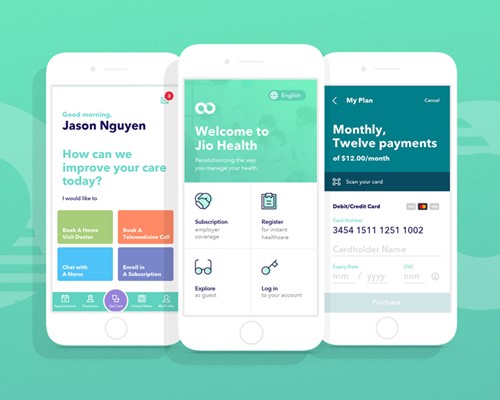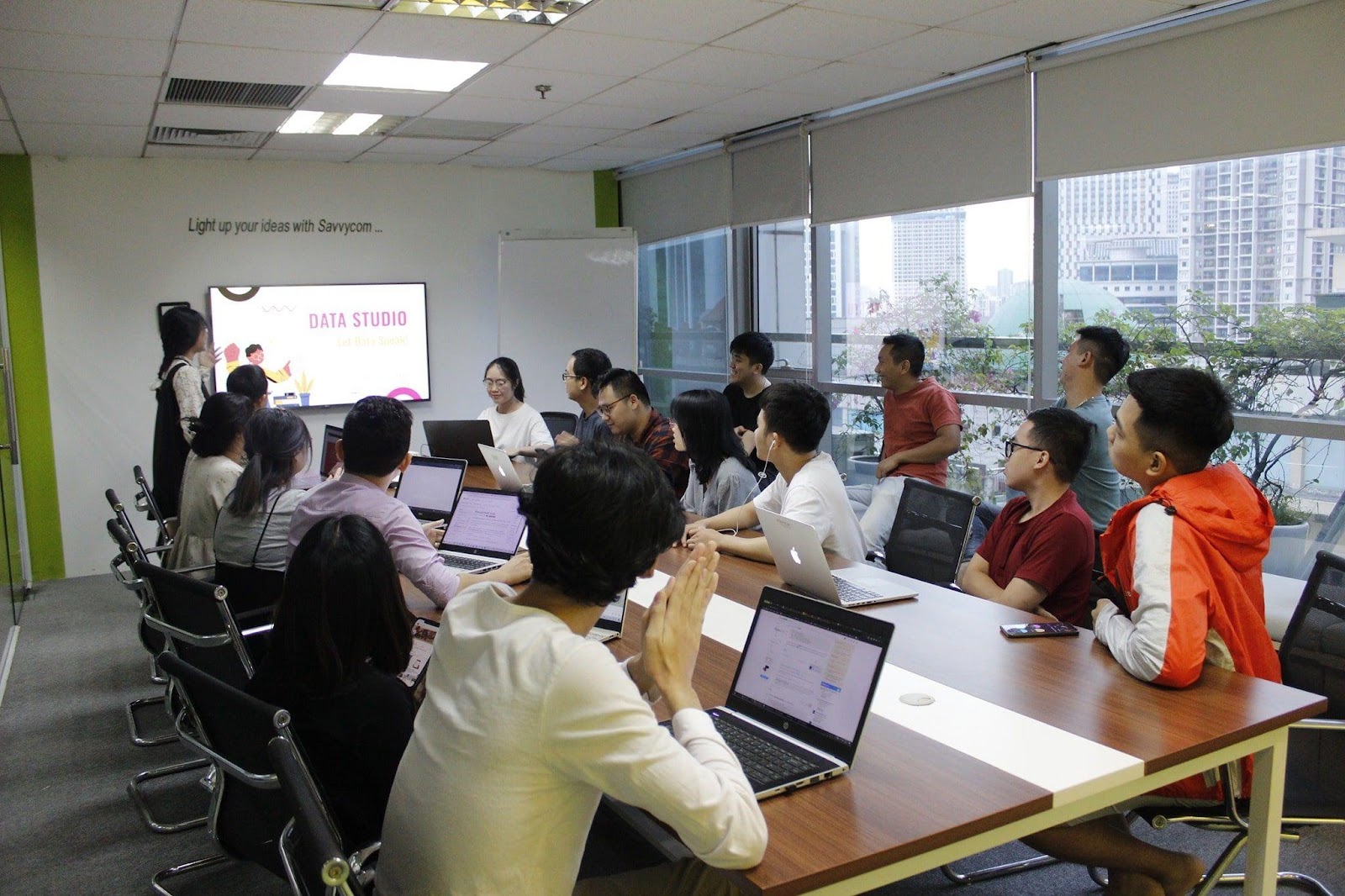Empowering Growth: Overcoming Business Challenges With Custom Software Solution
Small and medium-sized enterprises (SMEs) are essential contributors to the global economy, fueling innovation, generating employment, and nurturing entrepreneurial ventures. Despite their significance, SMEs frequently confront various obstacles that impede their progress and prosperity. This article aims to examine the primary challenges encountered by SMEs and to investigate how custom software solutions can enable entrepreneurs to surmount these barriers and flourish in a fiercely competitive business environment.
What Is A Custom Software Solution?
Custom software solutions are tailored to fit your business like a bespoke suit, addressing its unique needs, challenges, and objectives. Unlike off-the-shelf software, which takes a one-size-fits-all approach, custom software provides a competitive edge by offering innovative features tailored to your niche market.
One of the key advantages of custom software is its flexibility. It can grow and adapt alongside your business, scaling up or adjusting its functionality to meet evolving requirements. This is in stark contrast to packaged solutions, which may quickly become outdated or require expensive upgrades.
Custom software excels in integration, seamlessly connecting with your existing infrastructure to facilitate efficient data sharing and process automation. Additionally, it enhances the user experience by aligning with your staff’s workflow, resulting in increased efficiency and satisfaction.
While a custom software solution requires skilled technical resources and careful project management, the end product is a unique tool that can revolutionize your organization’s operations, setting you apart from competitors. The ultimate aim is to create a system that works for you, rather than one that necessitates adaptation on your part.
How Customized Software Can Transform Your Business
Customized software development is about tailoring solutions specifically to your organization’s needs, enabling task automation, communication enhancement, and overall efficiency improvement. Investing in customized software has the potential to revolutionize your business operations and unlock unprecedented levels of success.
Benefits of customized software
Crafting software tailored to your business needs is akin to donning a bespoke suit: it’s tailored to fit perfectly, enhancing both comfort and style. Here’s why customized software solutions are the savvy choice:
- Tailored Solutions for Specific Needs: Custom software precisely aligns with your business operations, addressing unique challenges and boosting efficiency. Think of it as a tool designed exclusively for your company’s requirements.
- Scalability to Support Growth: As your business expands, custom software seamlessly adapts to accommodate more users and data. It’s a robust framework that grows with your business.
- Enhanced Flexibility for Agility: Market demands fluctuate, and your custom software can swiftly adapt, allowing for quick modifications in features. This agility ensures your business remains responsive to customer needs.
- Seamless Integration with Existing Systems: Custom software seamlessly integrates into your current ecosystem, facilitating smoother workflows and communication across departments. It acts as the linchpin ensuring all parts of your business work in harmony.
- Cost Efficiency in the Long Run: While the initial investment may be higher, custom software pays off in the long run. You save on licensing fees and reduce reliance on external vendors, leading to decreased long-term expenses.
- Competitive Advantage through Differentiation: Stand out with custom software offering unique functionalities and personalized experiences. It’s the secret ingredient that fosters customer loyalty and retention.
In essence, investing in customized software is investing in a tool that not only fits your business today but also shapes its future. It’s about embracing a solution that evolves with you, ensuring your business remains efficient, adaptable, and competitive in an ever-evolving market.
Industry statistics
In the ever-evolving landscape of digital transformation, custom software solutions stand as stalwarts of change. Let’s delve into some noteworthy statistics that illuminate their profound impact:
- Insight from Gartner: An impressive 87% of organizations are steering investments towards custom software, leveraging it to bolster operational efficiency and fortify their competitive stance.
- Deloitte’s Revelation: Deloitte’s research unveils a compelling truth: Businesses embracing custom software solution experience a remarkable 30% surge in productivity within the inaugural year alone.
- Wisdom from McKinsey & Company: McKinsey & Company’s analysis reveals a strategic advantage for companies prioritizing digital transformation, including custom software, as they are 23% more likely to surpass competitors in revenue growth.
- Perspective from Forrester Research: According to Forrester Research, a substantial 65% of executives prioritize customization in their software development investment decisions, recognizing its pivotal role in driving business transformation and expansion.
These statistics collectively paint a vivid picture: custom software transcends its technical confines to become a strategic cornerstone. It empowers businesses to streamline operations, foster innovation, and carve a distinctive niche in the market.
As the digital economy flourishes, the significance of custom software in shaping business success becomes increasingly pronounced. Investing in tailored solutions thus becomes not merely a transaction, but a forward-looking commitment—a pledge to maintain agility, efficiency, and industry leadership in the dynamic landscape of tomorrow.
Popular Challenges In Developing Custom Software

Dig into common challenges in the field
In custom software development, many challenges still exist, and below we will point out common challenges and how to solve them.
Technical challenges
When it comes to technology, custom programming brings its own set of challenges. Think about dealing with complex logic, picking platforms that can stand the test of time, and making sure your code is locked down tight against vulnerabilities. It all needs some extra TLC.
Simplifying intricacies
Managing Complexity stands out as a critical aspect. Custom business applications often boast advanced integrations and extensive feature sets, presenting formidable hurdles in design and deployment. However, with adept technical leadership and meticulous software architecture, this complexity can be effectively navigated. Employing systematic design patterns, thorough documentation, modular code structures, and rigorous testing protocols streamlines the process.
Guaranteeing expandability
Ensuring Scalability presents another significant challenge. Custom software must possess the capacity to scale its features and capacity to accommodate business growth, usage fluctuations, and evolving needs.
Implementing established scaling techniques, such as decoupled application architectures, stateless designs, data caching layers, and cloud-native frameworks, from the outset simplifies this endeavor. Auto-scaling configurations that adjust computing resources based on demand further enhance scalability.
Addressing security concerns
Mitigating security risks is paramount in today’s landscape, with cyber threats targeting applications on the rise. Ensuring watertight security is imperative for successful software ventures, especially given recent findings indicating that 57% of monitored apps faced cyber attacks.
Embedding security best practices into the software development lifecycle, including input validation, authentication, encryption, and penetration testing, effectively mitigate these risks. Adhering to recognized frameworks like the Open Worldwide Application Security Project (OWASP) provides guidance in these efforts.
Selecting optimal tech solutions
Lastly, Choosing the Right Technology Stack demands careful consideration due to its long-term impact on sustainability. Factors such as existing infrastructure, developer expertise, community support, cost, and alignment with business objectives must be evaluated. Thorough upfront analysis is crucial for making well-informed decisions.
Project Management Challenges

Project management will face many difficulties during the work process if there is no effective way to allocate work and a roadmap
Looking at project management, priorities tend to change over extended periods of custom development. This often results in exceeding budgets, delays, and expanding scope, necessitating strict oversight.
Adapting to shifting needs and scope
Managing Changing Requirements and Scope is essential in custom projects due to their iterative nature. Fluctuating requirements can lead to scope creep, which must be addressed promptly.
Implementing structured change control processes and traceability matrices helps mitigate the impact of these changes by mapping requirements to software features.
Controlling budget exceedances
Controlling Budget Overruns poses a significant challenge in lengthy custom development projects. Maintaining adherence to allocated budgets becomes increasingly difficult over months or years of development. According to a McKinsey study, such projects typically exceed budgets by an average of 45% and surpass schedules by 7%, resulting in 56% less value than initially anticipated.
While Diligent upfront planning and fixed-bid contracts offer some control over costs, the inevitability of change over extended periods necessitates adaptable approaches. Agile frameworks, emphasizing the delivery of functional software in short iterations, prove invaluable in detecting misalignments early, thereby preventing excessive spending.
Adhering to project schedule
Meeting Project Timelines can be difficult despite agile methodologies. Realistic roadmap setting, effective collaboration tools, daily standups, and velocity tracking increase project visibility and facilitate early detection of delays. Experienced managerial staff play a vital role in steering troubled ventures back on track.
Human resources challenges

Human resources is always a difficult problem in all professions
Discovering and orchestrating specialized teams that possess the right blend of domain knowledge and technical skills poses numerous hurdles throughout the custom software development journey.
Assembling the right team for custom projects
Crafting custom software solutions hinges on assembling a team with the right blend of technical prowess and business acumen. The challenge lies in finding these multifaceted individuals who can swiftly grasp and address your unique business needs.
To build such a team, consider partnering with specialized software firms that offer managed teams, ensuring a rapid assembly of required capabilities. Additionally, supplementing with niche contractors can proactively plug any skill gaps. This strategic collaboration ensures that every project is powered by a team that seamlessly integrates with your organization’s culture and goals, setting the stage for successful project execution.
Overcoming communication challenges
Effective communication is vital in custom software solutions, ensuring alignment and information flow among all team members, from developers to stakeholders. To overcome communication barriers, establish regular check-ins like daily standups and sprint retrospectives, fostering openness and collaboration.
Additionally, leveraging collaborative tools streamlines interactions, while interactive dashboards visually represent progress, keeping the team engaged and milestone-aware. Appointing a liaison to facilitate clear dialogue between business and technical teams minimizes misunderstandings, ensuring precise goal attainment. Investing in these communication strategies is pivotal for project success.
Post-deployment challenges

Customer support after product delivery is always paramount
Once operational, bespoke systems require their own strategies to promote user acceptance from the outset. Enduring support frameworks become crucial when external support from pre-packaged software vendors is unavailable.
Providing Ongoing Maintenance and Support
After deployment, custom platforms require ongoing enhancements, upkeep, and assistance to end-users, which can be resource-intensive if not budgeted appropriately. Maintenance costs can consume over 90% of total expenses over software lifetimes, making post-deployment support crucial.
To mitigate these challenges, it’s essential to have a well-defined post-deployment plan and support from the development team. This ensures smooth operation through bug fixes, updates, and user adoption. Long-term roadmaps aligned to business goals enable gradual capability injection based on priorities, while configurable rules engines empower admins to customize behaviors without constant developer assistance.
Streamlined ticketing, robust monitoring, and fostering internal technical teams further optimize self-sufficiency, taming the chaos of post-deployment challenges.
Encouraging User Adoption
Post-deployment success hinges on widespread user adoption to maximize system value. Yet, organizational inertia and the learning curve of new platforms can impede engagement.
A robust post-deployment plan, supported by ongoing assistance from the development team, is crucial. Implementing strategies such as training programs, online resources, and user-friendly interfaces aids users in adapting efficiently. Additionally, feedback mechanisms are vital for identifying and rectifying any usability issues promptly.
Key Considerations When Developing Custom Software
Crafting bespoke software demands meticulous attention to various critical factors. These factors wield substantial influence over the outcome of software development endeavors.
- Understanding Business Requirements: The cornerstone of any custom software initiative rests upon a deep comprehension of business needs. Extensive discussions with stakeholders elucidate their requirements and expectations, facilitating the creation of software that seamlessly integrates with organizational goals.
- Budgeting and Resource Management: Custom software solution entails judicious allocation of resources and budgetary considerations. A well-defined budget and efficient resource distribution are imperative for project adherence, averting unexpected expenses and time lags.
- Selection of Development Partner: The choice of development company can determine project success. Opting for a reputable firm with a track record in bespoke software development is paramount. Factors such as their experience, alignment with organizational ethos, and advisory proficiency should guide the decision-making process.
- Technology Stack Selection: The technology stack underpins custom software functionality and scalability. It should be selected based on future project needs, considering aspects like integration feasibility, security, and support. The appropriate technology stack ensures resilient software capable of meeting present and future demands.
- Adoption of Agile Methodologies: Agile frameworks foster project adaptability and responsiveness to change. This approach fosters collaboration, facilitates incremental enhancements, and accelerates product readiness. Agile adoption enables swift response to feedback, ensuring software efficacy.
- Emphasis on Testing and Quality Assurance: Robust testing and quality assurance protocols are indispensable in custom software development. Thorough software testing and QA services defects and usability issues pre-release, upholding product excellence. A stringent focus on quality assurance guarantees adherence to performance, reliability, and user satisfaction benchmarks.
In essence, custom software development necessitates exhaustive research and consultation with domain experts. Understanding business requirements, technology stack selection, budget and resource management, choice of development partner, Agile implementation, and emphasis on testing and quality assurance are pivotal considerations shaping project triumph.

Jio Health – Telemedicine App Built by Savvycom
Our team can help you with the development of your application. Contact us to get a free initial consultation regarding your project and its estimation in terms of cost, timeline, and needed technical talent.
Savvycom’s Approach To Custom Software Solution
At Savvycom, we focus on our clients and their needs when developing custom embedded software development company. We plan and work carefully to ensure each project fits our clients’ needs. Here’s how we do it:
- Understanding Client Requirements: We start by delving deep into our clients’ objectives, challenges, and aspirations. Through close engagement, we gain a clear vision of their goals.
- Strategic Planning: With insights in hand, we craft a strategic plan detailing key milestones, deliverables, and goals, providing a roadmap for the development process.
- Agile Development Methodology: Flexibility is key. We employ agile practices to swiftly adapt to changes, ensuring the end product meets client expectations.
- Expert Development Team: Our cross-functional team of experts brings extensive experience and technical know-how to tackle projects across various industries.
- Quality Assurance: We maintain the highest quality standards, employing rigorous testing and quality assurance processes to ensure reliability, performance, and security.
- Continuous Support and Maintenance: Our commitment extends post-deployment. We offer ongoing support and maintenance to ensure the software evolves with our clients’ businesses.

Savvycom is currently present in the US, Australia, Vietnam, and Thailand
At Savvycom, we’re dedicated to delivering innovative solutions that drive growth and success in the digital era. Our clients’ testimonials and portfolio attest to our ability to turn their visions into reality, setting us apart in the realm of custom software development.
Bottom Line
Custom software solutions have emerged as a game-changer for businesses seeking to overcome competitive challenges, drive innovation, and achieve sustainable growth. By proactively addressing technical complexities, project uncertainties, communication risks, and support considerations, your business will be well poised to navigate the challenges associated with custom software effectively. Leveraging a trusted software development partner will also ensure a high-quality, long-lasting solution tailored to your unique business objectives.
If you’re ready to elevate your business through custom software, consider partnering with the experts at Savvycom. With specialized expertise and proven methodologies, we are dedicated to collaborating closely with you to deliver purpose-built software that exceeds expectations. Reach out to our team today for a free consultation.
Savvycom – Your Trusted Tech Partner!
With 25+ years of experience, Savvycom has used digital technology to help businesses thrive across a wide range of industries. We provide from high-quality technology consulting or end-to-end software development sevices to maximize your business potential.
Savvycom is what you need. Contact us now for more consultation:
- Phone: +84 24 3202 9222
- Hotline: +84 352 287 866 (VN)
- Email: [email protected]


